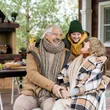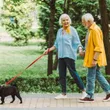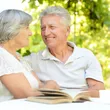Sharp Home Care Blog
CORONAVIRUS AND OLDER ADULTS: THINGS YOU NEED TO KNOW
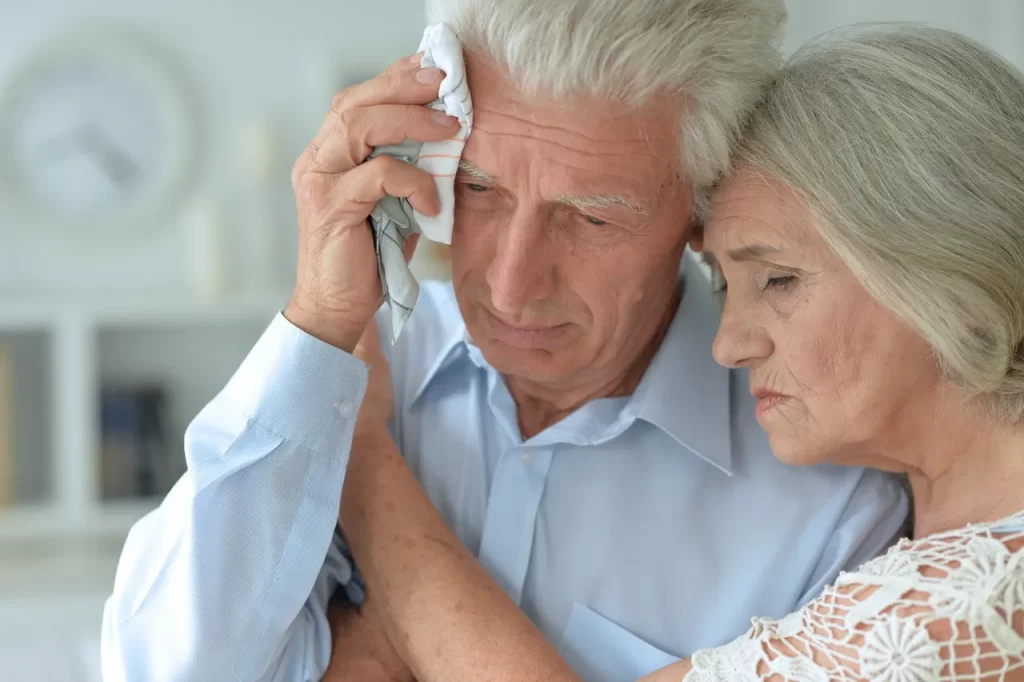
Seniors should take precautions, but shouldn’t panic
Coronavirus has been front page news for a while and has now started to spread in the U.S.
Even though it’s a serious situation, it’s important not to panic.
But it’s equally important to learn the facts and follow recommended prevention tips to protect yourself, your older adult, and those around you.
Here, we’ve gathered the latest news and research so you can easily see everything you need to know about coronavirus, how it affects seniors, and how to protect against it.
Keep reading or use these links to jump directly to a section below:
- Quick facts and prevention tips
- Where to get the latest updates
- What is coronavirus?
- How does it spread?
- Coronavirus prevention
- Coronavirus symptoms, severity, and death rate
- Seniors are at higher risk of complications and death
- Does the flu shot provide protection against coronavirus?
- Do face masks protect from coronavirus?
- Is there a coronavirus vaccine or treatment?
- Beware of fake coronavirus cures
Where to get the latest updates on coronavirus
The U.S. Centers for Disease Control (CDC) is monitoring the situation closely and is the best source of information about coronavirus.
For the latest information and recommendations, visit the CDC’s Situation Summary page.
And check the CDC’s quick tip sheet Share Facts, Not Fear for key coronavirus facts that put a stop to rumors and misinformation.
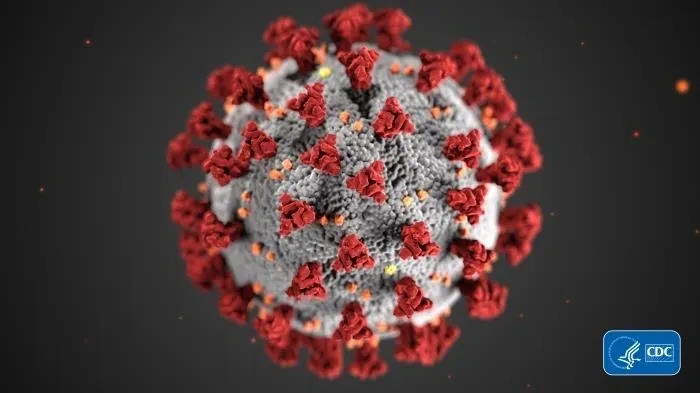
What is coronavirus
?
Coronaviruses are a large family of
viruses.
In general, human coronaviruses cause respiratory tract infections that range from the common cold to more serious illnesses like Severe Acute Respiratory Syndrome (SARS).
COVID-19 is the name for a new virus that’s been spreading across the globe since late December 2019. It hadn’t previously been seen in humans.
How does it spread?
Similar to seasonal flu, COVID-19 is passed between people through coughing, sneezing, or close contact like touching or shaking hands.
It can also be transmitted by touching a surface with the virus on it and then touching the eyes, nose, or mouth without washing hands.
Just like the flu, the virus spreads easily, which makes it hard to contain.
And because the incubation period is between 2 and 14 days, people could be transmitting the disease while they have no symptoms.
Coronavirus prevention
To protect from coronavirus, the CDC recommends the same methods that you’d use to protect against the flu or other common respiratory diseases.
Preventive measures include:
There is currently no vaccine to prevent coronavirus disease 2019 (COVID-19). The best way to prevent illness is to avoid being exposed to this virus. However, as a reminder, CDC always recommends everyday preventive actions to help prevent the spread of respiratory diseases, including:
- Get a flu shot (if you haven’t already)
- Avoid close contact with people who are sick.
- Avoid touching your eyes, nose, and mouth.
- Stay home when you are sick.
- Cover your cough or sneeze with a tissue, then throw the tissue in the trash.
- Clean and disinfect frequently touched objects and surfaces using a regular household cleaning spray or wipe.
- Follow CDC’s recommendations for using a face mask.
- CDC does not recommend that people who are well wear a face mask to protect themselves from respiratory diseases, including COVID-19.
- Face masks should be used by people who show symptoms of COVID-19 to help prevent the spread of the disease to others. The use of face masks is also crucial for health workers and people who are taking care of someone in close settings (at home or in a health care facility).
For information specific to healthcare, see CDC’s Hand Hygiene in Healthcare Settings
These are everyday habits that can help prevent the spread of several viruses. CDC does have specific guidance for travelers.
Washing hands often with soap and water for at least 20 seconds, especially after going to the bathroom; before eating; and after blowing nose, coughing, or sneezing. If soap and water aren’t available, use an alcohol-based hand sanitizer.
- Avoiding touching eyes, nose, and mouth with unwashed hands.
- Avoiding close contact with people who are sick. Close contact is considered more than a few minutes within 6 feet of a sick person or direct contact like kissing or sharing utensils.
- Staying away from work, school or other people if you become sick with respiratory symptoms like fever and cough.
- Covering coughs or sneezes with a tissue, then immediately throwing the tissue in the trash.
- Cleaning and disinfecting frequently touched objects and surfaces like doorknobs, remote controls, phones, computers, and mobile devices.
- Wash your hands! Always! Often! Again & Again! 20 seconds, folks! Sing ABC song. See below.
Consider “social distancing” for those at higher risk
People who are over the age of 60, pregnant, or on medications that weaken the immune system are at higher risk of infection and complications of infection.
Someone who’s at higher-risk might want to consider “social distancing” as a preventive measure.
That means if there’s any reported risk of COVID-19 transmission in the local area, avoid large gatherings of people and public transportation (bus, subway, taxi, rideshare).
In addition, keep a safe distance from other people, approximately 6 feet.
Coronavirus symptoms, severity, and death rate
Patients with COVID-19 have symptoms that are similar to other respiratory illnesses like colds or flu.
Common symptoms include mild to severe symptoms of fever, cough, and shortness of breath that usually begin two to 14 days after exposure.
Less commonly, sore throat and diarrhea have been reported in some patients.
Many patients with severe complications from the virus develop pneumonia in both lungs.
Researchers currently think that about 1% of coronavirus cases will result in death. However, the fatality rate varies by age, with older adults with pre-existing conditions more likely to die.
Seniors are at higher risk of complications and
death
Generally, with a respiratory illness like seasonal flu, older adults are at higher risk of infection and developing complications like pneumonia.
Coronavirus COVID-19, a respiratory illness, seems to be following the same pattern.
Seniors are more vulnerable because their immune systems are weaker due to age and often made worse by frailty or chronic illnesses like diabetes, chronic obstructive pulmonary disease (COPD), or heart disease. This reduces the body’s ability to cope with and recover from illness.
And according to U.S. News & World Report, “about 80% of people who have died from the virus in China were over 60 years of age, China’s National Health Commission has reported. Studies in The Lancet found an average age of 55 among Chinese citizens who’ve developed pneumonia as a result of coronavirus infection.”
This is similar to the pattern seen in seasonal flu. In most flu seasons, the majority of flu deaths happen in people 65 or older.
Does the flu shot provide
protection against coronavirus?
According to Nancy Messonnier, director of the CDC’s National Center for Respiratory Diseases, there’s no evidence that the flu shot or the pneumococcal vaccination will provide protection from the coronavirus.
But according to Dr. Trish Perl, an infectious disease specialist at the University of Texas Southwestern Medical Center, “it is possible that the coronavirus, by injuring lung cells, can make it easier for pneumonia to take hold in people who also get the flu or bacterial pneumonia.”
So, infectious disease specialists strongly recommend flu vaccination as a way to prepare for coronavirus.
For seniors, having both the flu shot and the pneumococcal vaccine can increase the chances of staying healthy.
Do face masks protect
from coronavirus?
Surgical masks are a common sight in areas with coronavirus outbreaks. But are they effective in protecting from infection?
Experts say that they offer some protection, but only when worn properly.
AARP writes that according to Amesh Adalja, M.D., an infectious disease physician and senior scholar at the Johns Hopkins University Center for Health Security, “a typical disposable mask can help prevent large-particle droplets from reaching your mouth and nose – two common areas where viruses enter the body.”
Adalja says, “But you really have to be meticulous when wearing them and not put your hand underneath them and touch your face or do anything that would contaminate your face and kind of obviate the reason for having the mask.”
If you are prone to constantly touch your mouth or nose with your hands, the face mask could possibly be a reminder to not touch your face.
Currently, the CDC doesn’t recommend that people who are well wear a face mask. They should only be worn if a healthcare professional recommends it.
In addition, a face mask will restrict breathing. So if someone already has a health condition that affects their ability to breathe, wearing a face mask could do more harm than good.
If you wonder if your older adult or you should be wearing a face mask, check with their or your doctor first.
However, face masks should be worn by people who show symptoms of COVID-19. This helps prevent the spread of the disease to others. They also should be worn by people who are taking care of someone who is sick.
Is there a coronavirus vaccine or treatment?
Currently, there is no vaccine or cure for coronavirus.
But scientists and pharmaceutical companies are hard at work on a vaccine. Some trials are scheduled to start as early as April.
And the World Health Organization’s director-general said that “more than 20 potential vaccines aimed at preventing coronavirus disease are in development around the world.”
Plus, treatments to help patients heal or to relieve symptoms are already in clinical trials. Currently, researchers are focused on testing the existing antiviral drug remdesivir and a combination of HIV and flu drugs.
Beware of fake
coronavirus cures
Be aware and avoid fake products that claim to cure coronavirus.
Scammers and thieves take advantage of public fear and confusion to sell fake medications, supplements, or treatments – especially on the internet and through social media.
Finally …. WASH YOUR HANDS, again, again, again ….
Wash your hands often with soap and water for at least 20 seconds, especially after going to the
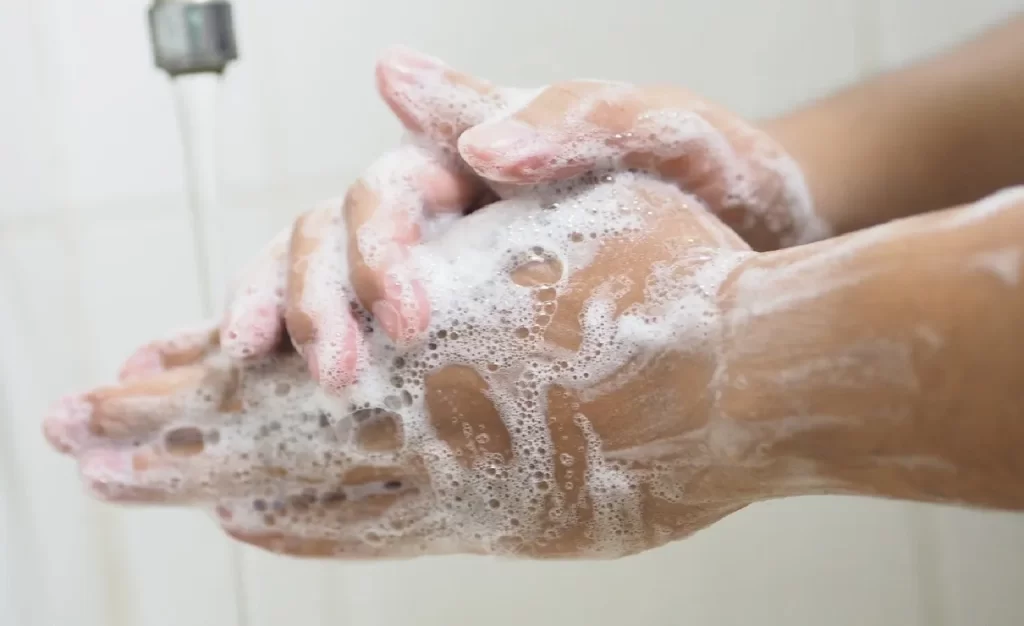
bathroom; before eating; and after blowing your nose, coughing, or sneezing, and using gas pump, handling public door knobs and light switches, etc.
- If soap and water are not readily available, use an alcohol-based hand sanitizer with at least 60% alcohol. Always wash hands with soap and water if hands are visibly dirty.
Call Sharp Home Care Today! We’re here 24/7 to help you.
Call 770-693-1870. Or click HERE to schedule a free in-home consultation.
Recommended for you:
- Getting a Flu Shot for Seniors: 5 Essential Tips
- 16 Cold and Flu Prevention Tips for Seniors and Caregivers
- Prevent and Manage the 10 Most Common Chronic Diseases in Older Adults
Credit: by Char Sharp & By DailyCaring Editorial Team | dailycaring.com
Image: Depositphotos
Categories
Recent Posts
CORONAVIRUS AND OLDER ADULTS: THINGS YOU NEED TO KNOW

Seniors should take
precautions,
but shouldn’t
panic
Coronavirus has been front page news for a while and has now started to spread in the U.S.
Even though it’s a serious situation, it’s important not to panic.
But it’s equally important to learn the facts and follow recommended prevention tips to protect yourself, your older adult, and those around you.
Here, we’ve gathered the latest news and research so you can easily see everything you need to know about coronavirus, how it affects seniors, and how to protect against it.
Keep reading or use these links to jump directly to a section below:
- Quick facts and prevention tips
- Where to get the latest updates
- What is coronavirus?
- How does it spread?
- Coronavirus prevention
- Coronavirus symptoms, severity, and death rate
- Seniors are at higher risk of complications and death
- Does the flu shot provide protection against coronavirus?
- Do face masks protect from coronavirus?
- Is there a coronavirus vaccine or treatment?
- Beware of fake coronavirus cures
Where to get
the latest updates on coronavirus
The U.S. Centers for Disease Control (CDC) is monitoring the situation closely and is the best source of information about coronavirus.
For the latest information and recommendations, visit the CDC’s Situation Summary page.
And check the CDC’s quick tip sheet Share Facts, Not Fear for key coronavirus facts that put a stop to rumors and misinformation.

What is coronavirus?
Coronaviruses are a large family of
viruses.
In general, human coronaviruses cause respiratory tract infections that range from the common cold to more serious illnesses like Severe Acute Respiratory Syndrome (SARS).
COVID-19 is the name for a new virus that’s been spreading across the globe since late December 2019. It hadn’t previously been seen in humans.
How does it spread?
Similar to seasonal flu, COVID-19 is passed between people through coughing, sneezing, or close contact like touching or shaking hands.
It can also be transmitted by touching a surface with the virus on it and then touching the eyes, nose, or mouth without washing hands.
Just like the flu, the virus spreads easily, which makes it hard to contain.
And because the incubation period is between 2 and 14 days, people could be transmitting the disease while they have no symptoms.
Coronavirus prevention
To protect from coronavirus, the CDC recommends the same methods that you’d use to protect against the flu or other common respiratory diseases.
Preventive measures include:
There is currently no vaccine to prevent coronavirus disease 2019 (COVID-19). The best way to prevent illness is to avoid being exposed to this virus. However, as a reminder, CDC always recommends everyday preventive actions to help prevent the spread of respiratory diseases, including:
- Get a flu shot (if you haven’t already)
- Avoid close contact with people who are sick.
- Avoid touching your eyes, nose, and mouth.
- Stay home when you are sick.
- Cover your cough or sneeze with a tissue, then throw the tissue in the trash.
- Clean and disinfect frequently touched objects and surfaces using a regular household cleaning spray or wipe.
- Follow CDC’s recommendations for using a face mask.
- CDC does not recommend that people who are well wear a face mask to protect themselves from respiratory diseases, including COVID-19.
- Face masks should be used by people who show symptoms of COVID-19 to help prevent the spread of the disease to others. The use of face masks is also crucial for health workers and people who are taking care of someone in close settings (at home or in a health care facility).
For information specific to healthcare, see CDC’s Hand Hygiene in Healthcare Settings
These are everyday habits that can help prevent the spread of several viruses. CDC does have specific guidance for travelers.
Washing hands often with soap and water for at least 20 seconds, especially after going to the bathroom; before eating; and after blowing nose, coughing, or sneezing. If soap and water aren’t available, use an alcohol-based hand sanitizer.
- Avoiding touching eyes, nose, and mouth with unwashed hands.
- Avoiding close contact with people who are sick. Close contact is considered more than a few minutes within 6 feet of a sick person or direct contact like kissing or sharing utensils.
- Staying away from work, school or other people if you become sick with respiratory symptoms like fever and cough.
- Covering coughs or sneezes with a tissue, then immediately throwing the tissue in the trash.
- Cleaning and disinfecting frequently touched objects and surfaces like doorknobs, remote controls, phones, computers, and mobile devices.
- Wash your hands! Always! Often! Again & Again! 20 seconds, folks! Sing ABC song. See below.
Consider “social distancing” for those at higher risk
People who are over the age of 60, pregnant, or on medications that weaken the immune system are at higher risk of infection and complications of infection.
Someone who’s at higher-risk might want to consider “social distancing” as a preventive measure.
That means if there’s any reported risk of COVID-19 transmission in the local area, avoid large gatherings of people and public transportation (bus, subway, taxi, rideshare).
In addition, keep a safe distance from other people, approximately 6 feet.
Coronavirus symptoms, severity, and death rate
Patients with COVID-19 have symptoms that are similar to other respiratory illnesses like colds or flu.
Common symptoms include mild to severe symptoms of fever, cough, and shortness of breath that usually begin two to 14 days after exposure.
Less commonly, sore throat and diarrhea have been reported in some patients.
Many patients with severe complications from the virus develop pneumonia in both lungs.
Researchers currently think that about 1% of coronavirus cases will result in death. However, the fatality rate varies by age, with older adults with pre-existing conditions more likely to die.
Seniors are at higher risk of complications and death
Generally, with a respiratory illness like seasonal flu, older adults are at higher risk of infection and developing complications like pneumonia.
Coronavirus COVID-19, a respiratory illness, seems to be following the same pattern.
Seniors are more vulnerable because their immune systems are weaker due to age and often made worse by frailty or chronic illnesses like diabetes, chronic obstructive pulmonary disease (COPD), or heart disease. This reduces the body’s ability to cope with and recover from illness.
And according to U.S. News & World Report, “about 80% of people who have died from the virus in China were over 60 years of age, China’s National Health Commission has reported. Studies in The Lancet found an average age of 55 among Chinese citizens who’ve developed pneumonia as a result of coronavirus infection.”
This is similar to the pattern seen in seasonal flu. In most flu seasons, the majority of flu deaths happen in people 65 or older.
Does the flu
shot provide protection against coronavirus?
According to Nancy Messonnier, director of the CDC’s National Center for Respiratory Diseases, there’s no evidence that the flu shot or the pneumococcal vaccination will provide protection from the coronavirus.
But according to Dr. Trish Perl, an infectious disease specialist at the University of Texas Southwestern Medical Center, “it is possible that the coronavirus, by injuring lung cells, can make it easier for pneumonia to take hold in people who also get the flu or bacterial pneumonia.”
So, infectious disease specialists strongly recommend flu vaccination as a way to prepare for coronavirus.
For seniors, having both the flu shot and the pneumococcal vaccine can increase the chances of staying healthy.
Do face masks protect from coronavirus?
Surgical masks are a common sight in areas with coronavirus outbreaks. But are they effective in protecting from infection?
Experts say that they offer some protection, but only when worn properly.
AARP writes that according to Amesh Adalja, M.D., an infectious disease physician and senior scholar at the Johns Hopkins University Center for Health Security, “a typical disposable mask can help prevent large-particle droplets from reaching your mouth and nose – two common areas where viruses enter the body.”
Adalja says, “But you really have to be meticulous when wearing them and not put your hand underneath them and touch your face or do anything that would contaminate your face and kind of obviate the reason for having the mask.”
If you are prone to constantly touch your mouth or nose with your hands, the face mask could possibly be a reminder to not touch your face.
Currently, the CDC doesn’t recommend that people who are well wear a face mask. They should only be worn if a healthcare professional recommends it.
In addition, a face mask will restrict breathing. So if someone already has a health condition that affects their ability to breathe, wearing a face mask could do more harm than good.
If you wonder if your older adult or you should be wearing a face mask, check with their or your doctor first.
However, face masks should be worn by people who show symptoms of COVID-19. This helps prevent the spread of the disease to others. They also should be worn by people who are taking care of someone who is sick.
Is there a coronavirus vaccine or treatment?
Currently, there is no vaccine or cure for coronavirus.
But scientists and pharmaceutical companies are hard at work on a vaccine. Some trials are scheduled to start as early as April.
And the World Health Organization’s director-general said that “more than 20 potential vaccines aimed at preventing coronavirus disease are in development around the world.”
Plus, treatments to help patients heal or to relieve symptoms are already in clinical trials. Currently, researchers are focused on testing the existing antiviral drug remdesivir and a combination of HIV and flu drugs.
Beware of fake
coronavirus cures
Be aware and avoid fake products that claim to cure coronavirus.
Scammers and thieves take advantage of public fear and confusion to sell fake medications, supplements, or treatments – especially on the internet and through social media.

Finally …. WASH YOUR HANDS, again, again, again ….
Wash your hands often with soap and water for at least 20 seconds, especially after going to the
bathroom; before eating; and after blowing your nose, coughing, or sneezing, and using gas pump, handling public door knobs and light switches, etc.
- If soap and water are not readily available, use an alcohol-based hand sanitizer with at least 60% alcohol. Always wash hands with soap and water if hands are visibly dirty.
Call Sharp Home Care Today! We’re here 24/7 to help you.
Call 770-693-1870. Or click HERE to schedule a free in-home consultation.
Recommended for you:
- Getting a Flu Shot for Seniors: 5 Essential Tips
- 16 Cold and Flu Prevention Tips for Seniors and Caregivers
- Prevent and Manage the 10 Most Common Chronic Diseases in Older Adults
Credit: by Char Sharp & By DailyCaring Editorial Team | dailycaring.com
Image: Depositphotos

